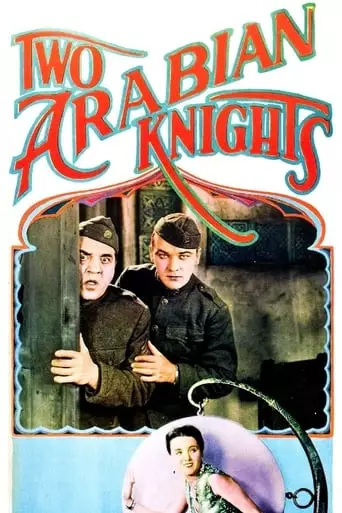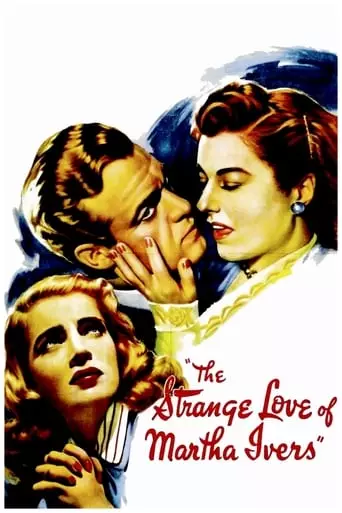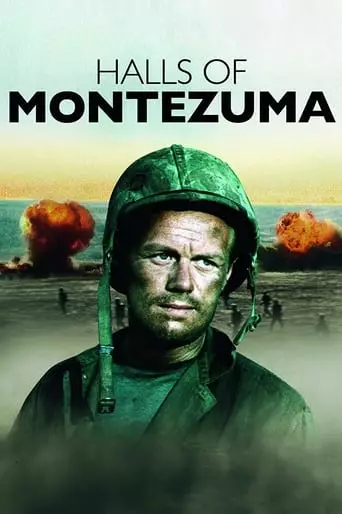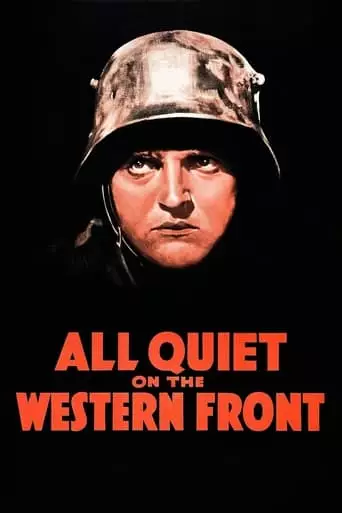During World War I, two American soldiers fight to escape the Germans while squabbling over a beautiful harem girl. Two Arabian Knights is a 1927 American silent comedy directed by […]

During World War I, two American soldiers fight to escape the Germans while squabbling over a beautiful harem girl. Two Arabian Knights is a 1927 American silent comedy directed by […]

Three childhood friends, Martha, Walter and Sam, share a terrible secret. Over time, the ambitious Martha and the pusillanimous Walter have married. She is a cold businesswoman; he is the […]

Richard Widmark leads an all star cast of marine leathernecks including Jack Palance, Robert Wagner, Karl Malden, Richard Boone and Jack Webb into battle on a heavily fortified island. This […]

Korean War, April 1953. Lieutenant Clemons, leader of the King company of the United States Infantry, is ordered to recapture Pork Chop Hill, occupied by a powerful Chinese Army force, […]

A young soldier faces profound disillusionment in the soul-destroying horror of World War I. Together with several other young German soldiers, he experiences the horrors of war, such evil of […]
Lewis Milestone: A Pioneer of Hollywood’s Golden Age
Lewis Milestone was a trailblazing filmmaker whose career spanned over four decades, encompassing the silent era, the advent of sound, and the rise of Hollywood’s Golden Age. Best known for his Academy Award-winning films All Quiet on the Western Front (1930) and Two Arabian Knights (1927), Milestone’s work is celebrated for its technical innovation, humanistic themes, and enduring impact on the art of cinema.
Early Life and Career Beginnings
Lewis Milestone was born Leib Milstein on September 30, 1895, in Bessarabia, then part of the Russian Empire (now Moldova). He immigrated to the United States in 1913, seeking opportunities in a rapidly modernizing world. Milestone worked various jobs before enlisting in the U.S. Army during World War I, where he gained experience making training films for the Signal Corps.
After the war, Milestone entered the burgeoning film industry, working as an assistant director and editor. His technical expertise and storytelling instincts quickly earned him opportunities to direct his own films, marking the start of a remarkable career.
Silent Era Success: Two Arabian Knights (1927)
Milestone’s breakthrough came with Two Arabian Knights (1927), a lighthearted comedy about two soldiers during World War I. The film’s inventive direction and comedic timing won Milestone the Academy Award for Best Director of a Comedy Picture at the inaugural Oscars ceremony in 1929. This recognition established him as a rising talent in Hollywood and set the stage for his future successes.
A Landmark Achievement: All Quiet on the Western Front (1930)
Milestone’s most celebrated work, All Quiet on the Western Front, is a harrowing anti-war epic based on Erich Maria Remarque’s novel of the same name. The film follows a group of young German soldiers who experience the horrors of World War I, shedding light on the devastating physical and emotional toll of war.
The film was groundbreaking in its realistic depiction of combat, innovative camera work, and deeply humanistic message. Milestone employed tracking shots, dynamic staging, and naturalistic performances to immerse audiences in the trenches of the Great War. The film’s unflinching portrayal of the futility of war resonated with viewers and critics alike.
All Quiet on the Western Front won the Academy Award for Best Picture, and Milestone received his second Oscar for Best Director. The film remains a seminal work in the history of cinema, influencing countless war films and solidifying Milestone’s reputation as a master filmmaker.
Versatility Across Genres
Throughout his career, Milestone demonstrated a remarkable ability to work across a variety of genres, including comedy, drama, war, and noir. Some of his notable films include:
The Front Page (1931): A sharp and fast-paced adaptation of the Broadway play, showcasing Milestone’s knack for witty dialogue and dynamic pacing.
Of Mice and Men (1939): A faithful adaptation of John Steinbeck’s novella, featuring powerful performances and a poignant exploration of friendship and hardship during the Great Depression.
Edge of Darkness (1943): A World War II resistance drama starring Errol Flynn, highlighting Milestone’s ability to balance action with emotional depth.
The Strange Love of Martha Ivers (1946): A film noir starring Barbara Stanwyck, Kirk Douglas, and Van Heflin, demonstrating Milestone’s skill in crafting morally complex characters and atmospheric storytelling.
Challenges and Later Career
While Milestone enjoyed significant success in the 1930s and 1940s, his career faced challenges in the postwar era. The changing dynamics of Hollywood, combined with the rise of television and shifting audience tastes, made it harder for Milestone to secure high-profile projects. Additionally, his outspoken political views, including his criticism of McCarthyism, placed him under scrutiny during the Red Scare.
Despite these challenges, Milestone continued to direct films and television episodes into the 1950s and 1960s. His final film, Mutiny on the Bounty (1962), starring Marlon Brando, was a lavish production that, while troubled behind the scenes, showcased Milestone’s enduring ability to handle large-scale storytelling.
Directorial Style and Themes
Lewis Milestone’s films are characterized by their technical innovation, emotional depth, and focus on the human condition. Key elements of his style include:
Dynamic Camera Work: Milestone often used tracking shots, fluid camera movements, and inventive framing to enhance the visual storytelling of his films.
Humanistic Themes: Many of Milestone’s films, particularly All Quiet on the Western Front, explore themes of humanity, morality, and the cost of war, reflecting his belief in the power of cinema to provoke thought and inspire empathy.
Genre Versatility: Milestone’s ability to excel in multiple genres speaks to his adaptability and creative range, allowing him to craft both intimate dramas and large-scale epics.
Legacy and Influence
Lewis Milestone’s contributions to cinema have left an indelible mark on the industry. His work, particularly All Quiet on the Western Front, continues to be studied and celebrated for its artistic and historical significance. Milestone’s pioneering use of camera techniques and his commitment to telling meaningful stories have inspired generations of filmmakers.
In 2022, All Quiet on the Western Front was adapted into a German-language film, a testament to the enduring relevance of Milestone’s original vision and its powerful anti-war message.
Conclusion
Lewis Milestone was a visionary director whose work transcended the limitations of his time, leaving a legacy of innovation, artistry, and humanity. From the trenches of All Quiet on the Western Front to the poignant relationships of Of Mice and Men, Milestone’s films continue to resonate with audiences, reminding us of the transformative power of cinema. As one of Hollywood’s early pioneers, he remains a towering figure in the history of filmmaking.